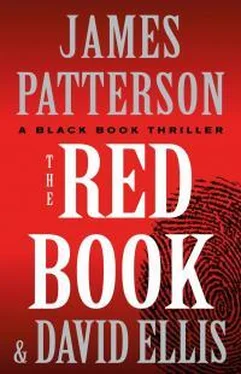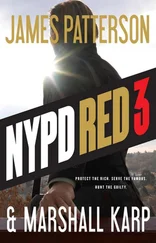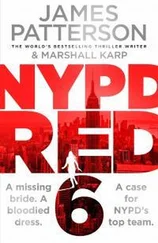“Maybe so, brother, but the easy answer’s right in front of you. Carla Griffin.”
Carla in bed with human traffickers? I don’t see it. And especially not after what I learned about her today. She’s got plenty else on her mind right now, raising Samuel alone and battling cancer.
“Either way,” I say, “it’s not like I’m gonna talk about this at work.”
“Especially not to Carla.”
“Not to anybody.”
I walk over to the desk in the corner, boot up my laptop. Time to start searching for “KB Investors Group.” It can’t be that hard to find the principals behind it.
“This girl Evie was probably trafficked; you’re probably right about that,” says Patti. “And going after human traffickers—that gets you through the pearly gates any day of the week.”
“Hooray for me.”
“But do me a favor and just keep one thing in mind,” she says. “Just because they’re the scum of the earth doesn’t mean they killed your wife.”
Chapter 61
PATTI PUTS her forehead against the window, looks down onto State Street, traffic already gnarled, early morning pedestrians clumped at the corners or kamikaze-ing through cars.
“You haven’t answered my question,” she says.
“That’s because we’re supposed to be here about you. Not your brother.”
She closes her eyes, feels a bit of vertigo. She hasn’t been sleeping. Not hard to figure why.
“We never talked about it,” she says. “After Val died. I mean, looking back—we all tried to tell Billy it wasn’t his fault. We pulled out all sorts of literature about depression and the lack of warning signs, and suicide during times of grief—you name it.”
“Sounds like you did talk about it.”
“No, but that’s the point—it wasn’t a conversation. We talked. Billy never did. We told him to get counseling; we told him he shouldn’t blame himself. But I can’t remember a single time when Billy said anything in response. I mean, he’d say, ‘I’m fine,’ or ‘I understand,’ that kind of thing.”
“He wouldn’t discuss his feelings with you.”
“Well, that’s Billy—he keeps it inside. What I’m saying is, he never talked to us about what happened . Never.”
“He must have told the police. He must have given a statement.”
Patti blows out air harshly, dismissively. Opens her eyes. Watches the pedestrians below, normal people with normal lives, normal concerns—making the mortgage, keeping their kids on the straight and narrow, saving up a little for retirement.
“We’re not normal people,” says Patti. “We are the police. I didn’t want him anywhere near a statement.”
“You were afraid of what he might say.”
“Obviously. So we kept our hands in the investigation and made sure it came out only one way—suicide. We even got the medical examiner to go along.”
“So Billy never once told you what happened in that bathroom with Val?”
“Not once. I felt like I was holding my breath for…God, for a year, at least. Waiting for the other shoe to drop. It never did. He eventually got better, moved on.”
“Seems like you’re holding your breath now, Patti.”
She turns around. “You still haven’t answered my question. Is it possible?”
Dr. Francis Almond, in his standard button-down oxford-cloth shirt, legs crossed in a leather chair, his bony fingers adjusting his eyeglasses, the overhead light in the office shining down on his considerable forehead. “Do you really expect me to say it’s impossible?” he asks. “Is anything impossible when it comes to the human brain?”
She looks him over, thinks about it. “We can talk about this, right?”
“We can talk about the past, Patti. I’ve told you that before.”
But she needs to hear it again. “Even if it’s a crime,” she says.
“Even if it’s a crime. A crime in the past. I can’t reveal it. I’m obligated to report it if a patient tells me she’s going to commit a crime in the future. And please don’t tell me you’re planning on doing that .”
He smiles as he says it, lets out a nervous chuckle. Watches her.
She doesn’t answer. She walks away from the window and sits in the leather chair across from him. Incredibly comfortable, like a soft, warm blanket. Intentionally so. It’s hard not to relax in this euphoria of cow skin.
“Well, it sounds like you want a fuller answer,” says Dr. Almond. “It’s not my area of expertise, but I’ll take a shot.” He removes his glasses, rubs his eyes. “Patti, the more we learn about memory, the more we learn how unreliable it is. You gave an example yourself about Billy, that Santa Claus story.”
She nods. “To this day, he insists it was our father he caught getting into that Santa Claus costume when we were kids, not Uncle Mikey. He swears by it.”
“Exactly. He replays it in his head and makes an adjustment for whatever reason, and then that adjustment becomes the memory. Then he keeps replaying it as adjusted, and it gets cemented in his brain that way. He’d swear on a Bible that it happened the way he remembers it. But it didn’t.”
“But this is a little different from being a kid and seeing your uncle dressing up as Santa,” she says. “Billy was an adult. And it was the death of his wife .”
“Sure, but now you’re adding trauma to the equation, too. Not just having your illusions about Saint Nick shattered. We’re talking about the death of his wife. Immediately preceded, of course, by the death of his daughter .”
She breaks eye contact, looks over at the ego wall—the diplomas and certifications, the photographs. Feels the knot in her stomach tighten.
“Billy was like a ghost when he walked into his house that day,” she says. “You should’ve seen him. I drove him from the hospital. It was, like, an hour after he’d lost Janey. He sat there in the passenger seat, shaking his head. He just said one thing. ‘Valerie was supposed to be there.’ He said it so quietly I almost couldn’t hear him. Like he didn’t want to say it out loud. Like…he felt like he wasn’t supposed to be thinking that way about Val, but he was anyway.”
She looks down, sees her hands trembling.
“We’ve only begun to touch on the effects of trauma on memory, Patti. And don’t forget Billy’s brain injury last year, the gunshot wound. We will probably never fully know the impact on his long-term memory of that injury. You put all that together…”
“Right,” she says, her voice rough now.
“So you ask me, Patti, as of this moment, today, is it possible that he doesn’t remember what happened with Val that day? My answer can only be yes. It’s certainly possible that he doesn’t remember.”
“It doesn’t seem like he does,” she says. “He’s all about these Russian sex traffickers. It’s ridiculous, but he’s got it in his head. Is he…projecting or something?”
Her nerves jangling, she doesn’t wait for an answer, pops out of the chair and starts pacing, pulls on her hair. “You have any idea how hard it is to sit there and listen to him speculate that Val might’ve been murdered and not say something? Not tell him?”
“Very hard, I’d imagine. You feel like you can’t?”
She glares at him. “ Course I can’t.”
“Have you considered the possibility that he has a right to know?”
“Have you considered the possibility that he’d never speak to me again? That I’d lose him forever?”
Hearing the words, just speaking them aloud, sends a shudder through her.
“So maybe this isn’t about Billy after all,” says Dr. Almond. “This is about you.”
Читать дальше












